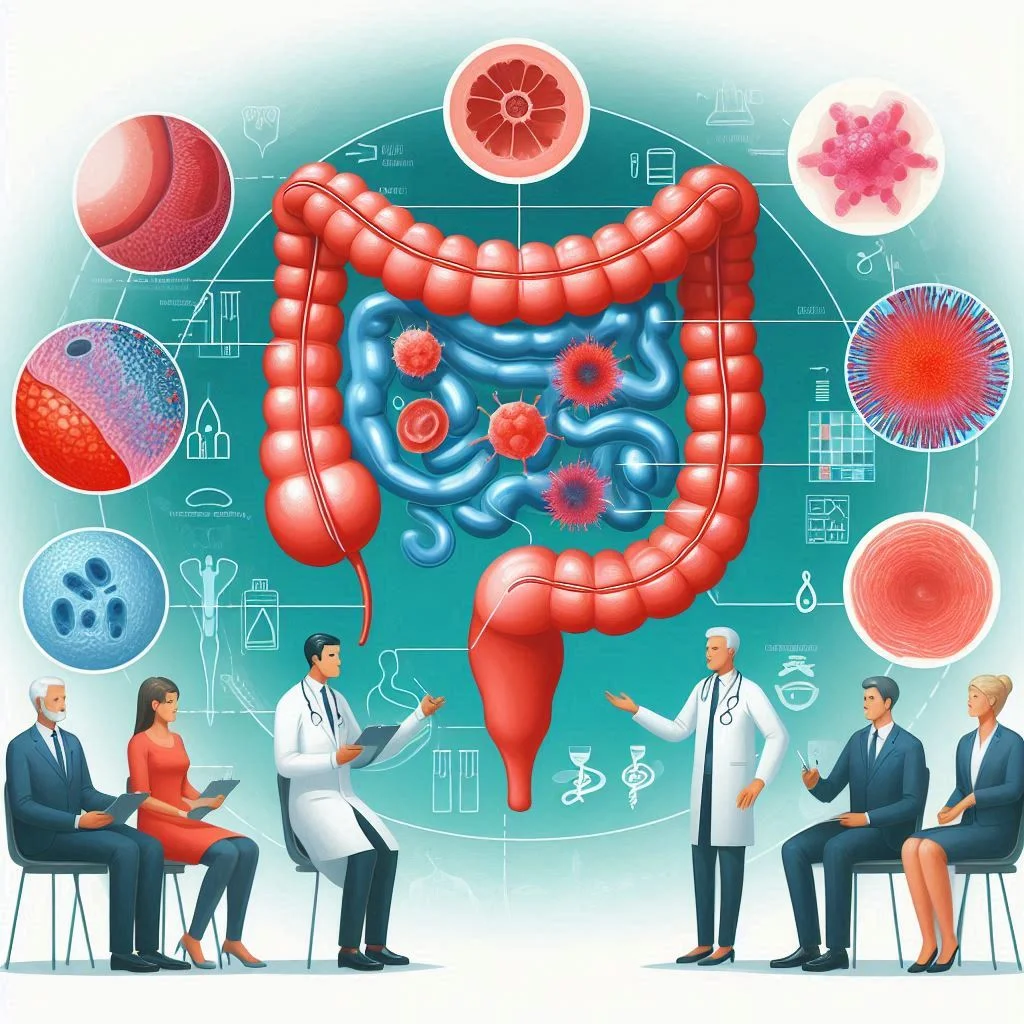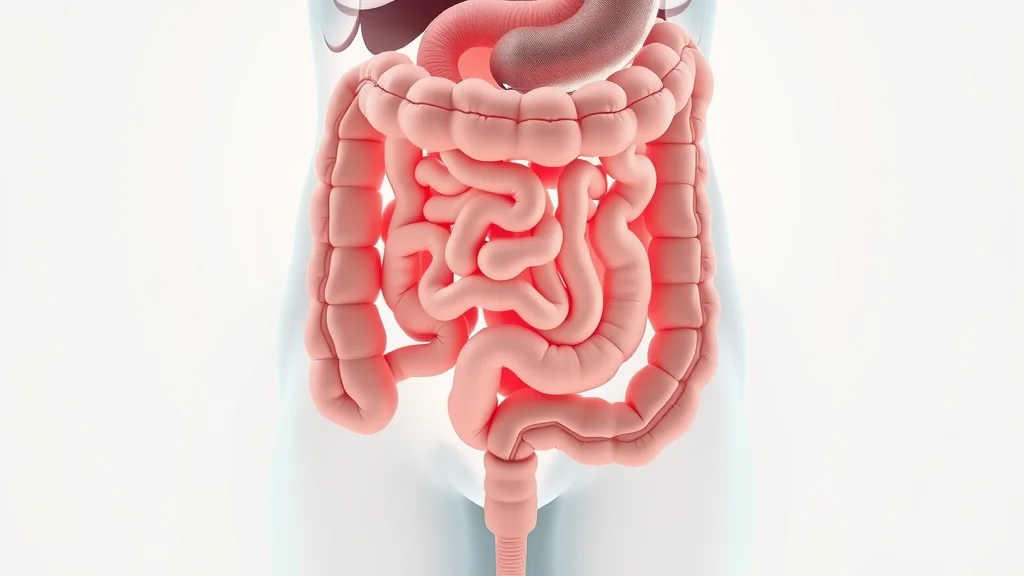Did you know nearly 1 in 23 adults will face colon cancer?
Recognizing the warning signs early can save lives. Ignoring symptoms can delay diagnosis and treatment. Learn the crucial signs to watch for and take charge of your health before it’s too late. The warning signs of colon cancer may seem subtle but can reveal life-saving information if you pay attention.

In this article, we’ll break down every key symptom, explain what makes colon cancer unique, and provide expert-backed recommendations for screening and taking action on noticeable symptoms.
Why Recognizing the Warning Signs of Colon Cancer Matters
Did you know nearly 1 in 23 adults will face colon cancer? Recognizing the warning signs early can save lives. Ignoring symptoms can delay diagnosis and treatment. Learn the crucial signs to watch for and take charge of your health before it’s too late.

The Importance of Early Detection for Colon Cancer and Colorectal Cancer
Early detection is one of the most significant factors in surviving colon cancer. If caught in its early stage, treatment is often simpler, more effective, and has a far higher chance of success. Unfortunately, many cases are not diagnosed until the cancer has progressed to an advanced stage, which can make cancer care more complicated and lead to less favorable outcomes.
For both colon cancer and rectal cancer, screening and symptom awareness are critical—especially since the symptoms of colorectal cancer often go unnoticed or are mistaken for benign digestive issues. Being vigilant about any unexplained change in your digestive or bowel habits can empower you or your loved ones to seek medical advice in time.
"Most colorectal cancer cases can be managed successfully if caught early. Screening and beware of symptoms are key." – Dr. Ava Greene, MD, Gastroenterologist
The United States Preventive Services Task Force recommends that most adults begin colorectal cancer screening at age 45, but anyone experiencing persistent symptoms should not wait. Discussing even small but unusual changes with your healthcare provider can help detect cancer before it becomes advanced.
Knowing the warning signs of colon cancer is not just useful for your own health—being informed can also help you look out for family members who may be at risk, particularly if there’s a known family history.
What You'll Learn About the Warning Signs of Colon Cancer
The most common symptoms of colorectal cancer
Early-stage vs. late-stage warning signs
Risk factors and family history considerations
When to seek cancer screening based on symptoms
Expert recommendations for prevention and intervention

Understanding Colon Cancer and Rectal Cancer: A Quick Overview
What Is Colorectal Cancer?
Colorectal cancer includes both colon cancer and rectal cancer. These cancers begin in the colon or rectum, which are both parts of your large intestine. Colorectal cancer is one of the most common types of cancer in the United States, and it can develop slowly over several years.
According to the National Cancer Institute, colorectal cancer often starts as small growths called polyps, which can become cancerous over time. Recognizing symptoms of colorectal cancer early allows your care provider to detect cancer during the critical early stages, when it is most treatable.
The colon (large bowel) is responsible for absorbing water and nutrients from food, while the rectum serves as the final section before waste leaves your body. Cancer affecting either of these organs can disrupt normal digestion, trigger noticeable changes in your bowel habits, and produce other symptoms—some subtle, some severe. That’s why understanding what symptoms to watch for, and seeking timely colorectal cancer screening, is crucial to catching this disease early.
How Colon Cancer and Rectal Cancer Differ
Both colon cancer and rectal cancer are often grouped under the term ‘colorectal cancer,’ but they occur in different parts of the digestive tract. Colon cancer begins in the long, upper section of the large intestine, while rectal cancer starts in the last several inches of the colon, closest to the anus.

While both cancers share many risk factors and symptoms, rectal cancer may cause more pronounced symptoms like rectal bleeding, changes in stool shape, or the sensation of incomplete evacuation due to its location. Treatment for colon cancer and rectal cancer may also differ in approach and complexity, further underscoring the importance of early detection and tailored cancer care.
Being aware of both types is essential because treatments such as surgery, chemotherapy, or radiation may vary based on the cancer stage and location in the colon or rectum. Regular screening for colorectal cancer is recommended for anyone with persistent symptoms or a strong family history, as immediate diagnosis improves survival rates and treatment options.
Why Symptoms of Colorectal Cancer Often Go Unnoticed
One of the biggest challenges with colorectal cancer lies in the subtlety of its early warning signs. Many people may dismiss symptoms like mild abdominal discomfort, occasional rectal bleeding, or changes in bowel habits as minor digestive issues or irritable bowel syndrome.
Early symptoms of colorectal cancer are often so mild that people delay seeing their care provider until the disease has progressed. This delay in diagnosis can lead to treatment starting at a more advanced cancer stage, reducing chances of a cure.
This is why ongoing awareness campaigns by groups such as the National Cancer Institute and American Cancer Society stress the importance of not ignoring persistent changes. If you experience unusual bowel movements, see blood in your stool, or have unexplained weight loss, these can all be warning signs of colon cancer that should prompt immediate discussion with a healthcare provider.

The Most Common Warning Signs of Colon Cancer
Symptoms of Colorectal Cancer to Watch For
Changes in bowel habits
Blood in stool or rectal bleeding
Unexplained weight loss
Persistent abdominal discomfort
Fatigue or weakness
Sensation of incomplete bowel emptying
Narrow stools
The warning signs of colon cancer can range from subtle to severe. One common symptom is a persistent change in your bowel habits, such as ongoing diarrhea, constipation, or a change in stool consistency that lasts longer than a few days. Blood in your stool or noticeable rectal bleeding is a red flag—this should never be dismissed as ‘just hemorrhoids’ without talking to your care provider.
Some people also experience unexplained weight loss, ongoing abdominal pain or cramping, or a sensation that their bowel doesn’t empty completely. Feeling unusually tired—without a clear reason—can also be a sign of hidden blood loss from the colon or rectum. These symptoms are particularly important if they persist or become more severe over time.
"Don’t mistake occasional discomfort for normalcy—persistent symptoms need immediate attention." – Dr. Miguel Torres, Licensed Oncologist
Other symptoms of colorectal cancer can include narrow or ribbon-shaped stools, which may indicate a blockage or obstruction in the colon or rectum. Fatigue and weakness may also develop, especially if the body is losing blood over time.
Many people assume these symptoms are due to stress, diet, or irritable bowel syndrome, but if you notice a combination of these signs or if they worsen, it’s crucial to seek cancer information from your provider and request screening as needed.

While monitoring for these symptoms is essential, it's also important to recognize that other serious health conditions can present with subtle warning signs. For example, understanding the key signs of a blood clot can help you differentiate between digestive issues and vascular concerns, ensuring you seek the right care promptly.
Table: Comparing Early vs. Advanced Warning Signs of Colon Cancer
Symptom |
Early Stage |
Advanced Stage |
|---|---|---|
Change in bowel habits |
Common |
Very Common |
Bloody stool |
Rare |
Common |
Weight loss |
Uncommon |
Common |
Fatigue |
Uncommon |
Common |
Obstruction |
Very Rare |
Possible |
Risk Factors and Family History: Who Is at Greater Risk for Colon Cancer?
How Family History Affects Colorectal Cancer Risk
Family history is a significant risk factor in developing colon cancer and rectal cancer. If you have a first-degree relative (such as a parent, sibling, or child) who has been diagnosed with colorectal cancer, your risk of developing the disease is two to three times higher than average. Certain inherited genetic syndromes, like Lynch syndrome or familial adenomatous polyposis, also greatly increase your risk.
Care providers recommend that individuals with a strong family history undergo colorectal cancer screening much earlier—sometimes starting as early as their twenties or thirties—and continue with more frequent check-ups throughout life.
Knowing your family’s medical history can help you make informed choices about cancer screening and encourage earlier intervention. Discussing your risk factors with your care provider ensures you receive the right screening tests and get tailored cancer information based on your situation.
Lifestyle and Environmental Risk Factors
Beyond family history, lifestyle and environmental factors can increase your risk for colon cancer and rectal cancer. Diets high in red and processed meats, low physical activity, heavy alcohol use, and smoking all contribute to heightened cancer risk. Chronic conditions such as inflammatory bowel disease (including Crohn’s disease and ulcerative colitis) further increase your risk.
Maintaining a healthy diet rich in fiber, fruits, vegetables, and lean proteins—along with regular physical activity—has been shown to lower your chances of developing colorectal cancers. Additionally, limiting processed foods, reducing alcohol consumption, and quitting smoking are effective prevention strategies recommended by national cancer organizations.
Understanding and modifying these risk factors, where possible, is essential to safeguarding your colon and rectum health. Even if you have an increased risk due to lifestyle factors, regular cancer screening and communication with your care provider can still catch colorectal cancer in its most treatable stages.
Age, Genetics, and Other Underlying Conditions
While colon cancer can affect adults of any age, the risk increases significantly after age 45. Genetics plays a vital role—with certain inherited mutations predisposing individuals to early onset. Other underlying medical conditions, such as old age, obesity, type 2 diabetes, and past radiation therapy to the abdomen, further increase risk.
People with a personal or family history of adenomatous polyps or inflammatory bowel disease need to be particularly proactive about screening for colorectal cancer. Your care provider may recommend genetic counseling or targeted cancer information if you have multiple risk factors or a complex family history.

Cancer Screening and Professional Guidelines for the Warning Signs of Colon Cancer
When to Seek Colorectal Cancer Screening
The American Cancer Society and other leading organizations recommend that adults at average risk begin colorectal cancer screening at age 45. However, those with increased risk factors—such as family history, personal history of inflammatory bowel disease, or genetic conditions—may need to start screening earlier.
If you notice warning signs of colon cancer, such as persistent changes in bowel habits or blood in your stool, it’s critical to discuss these symptoms with your care provider immediately. Timely screening can help detect cancer at an early, more treatable stage, dramatically improving your prognosis.
Cancer screening is essential even before symptoms manifest, especially for those with strong family history. By following provider recommendations and being diligent about symptoms of colorectal cancer, you increase your chances of catching the disease when outcomes are most favorable. Always ask about screening guidelines at your regular checkups, particularly if your risk profile changes or you have a new diagnosis in your family.
Types of Colon Cancer Screening Tests
Several effective tests exist to detect colon cancer and rectal cancer early. The gold standard is colonoscopy, which allows direct visualization and removal of polyps during the same procedure. Other options include high-sensitivity stool tests such as the fecal immunochemical test (FIT), stool DNA testing, flexible sigmoidoscopy, and CT colonography (“virtual colonoscopy”).
Screening intervals vary based on the risk factors and the chosen test. For example, colonoscopy is typically recommended every 10 years for people at average risk, while other tests may be performed annually or every three years. Your care provider will help determine which type of cancer screening best fits your needs.
"With a strong family history, ask your provider about earlier and more frequent screenings." – Dr. Sophie Lee, Colorectal Surgeon
Don’t wait for signs or symptoms; regular screening is proactive cancer care. Knowing your options and following through with recommendations can make all the difference, particularly for colorectal cancers that develop slowly and insidiously.
What to Do If You Notice Symptoms of Colorectal Cancer
Steps for Self-Assessment and Monitoring
Recognizing the warning signs of colon cancer is the first step, but knowing how to respond is equally important. Begin by tracking your symptoms—note when they started, how often they occur, and their severity. Keep a log of any new or unusual changes, such as blood in your stool, persistent abdominal pain, or ongoing changes in bowel movements.
This detailed record will help your care provider make more informed decisions about possible next steps. Using a self-assessment checklist (available from sources like the American Cancer Society) ensures nothing is overlooked.
If you have a family history or other risk factors, be especially vigilant and proactive about noting symptoms. Share this information with your healthcare provider, and don’t hesitate to ask direct questions about your risk for colorectal cancer and the most appropriate screening plan. Prompt action can lead to early intervention—a crucial factor in successful cancer care outcomes.
When to See a Doctor About Possible Colorectal Cancer
If you notice any warning signs of colon cancer that persist for more than a week—especially rectal bleeding, unexplained weight loss, or significant changes in bowel habits—schedule an appointment with your doctor right away. Don’t attempt to self-diagnose or dismiss symptoms as routine digestive issues.
Early-stage colorectal cancer can sometimes be entirely asymptomatic, so routine screening is vital even for those without noticeable symptoms. If you’re over 45, overdue for cancer screening, or have strong risk factors, don’t delay having a frank conversation with your care provider about your risk.

Case Study: Early Intervention Saves Lives
Original Data from Recent Clinical Studies on Colon Cancer Detection
Recent studies published in leading medical journals show that five-year survival rates for early-stage colon cancer (stage 1 or 2) can reach up to 91% when treatment starts promptly. In contrast, advanced-stage diagnoses (stage 3 or 4) see survival rates drop dramatically—sometimes below 15%.
Screening programs implemented across the United States have demonstrated a reduction in overall mortality from colorectal cancer by as much as 30% due to earlier detection, supporting the importance of vigilance and early intervention. Researchers consistently find that populations with higher rates of colorectal cancer screening and symptom awareness experience significantly better cancer care outcomes.
Data from the National Cancer Institute indicate that regular use of colonoscopy and FIT tests reduces both incidence and mortality, especially among adults with risk factors or family history of colon cancer and rectal cancer. These findings further highlight the need for consistent, guideline-based screening programs and patient education about warning signs.
Real Patient Experiences and Outcomes
Consider the personal story of Maria, age 52, who noticed minor changes in her bowel habits, dismissed occasional rectal bleeding as hemorrhoids, but decided to mention her symptoms at a routine checkup. Her provider recommended an immediate colonoscopy, which detected a stage 1 tumor.
With prompt surgery and follow-up care, she is now cancer-free and continues routine screening. Meanwhile, John, age 67, ignored weight loss and fatigue until requiring emergency care for a bowel obstruction—his cancer, sadly, was diagnosed at stage 4. These real-life stories underscore that listening to your body and acting on warning signs can save lives.

Watch our explainer video, where a medical expert walks you through colon cancer warning signs, the screening process, and key symptoms using clear visuals and animation—empowering you with the facts you need to act early.
People Also Ask: Warning Signs of Colon Cancer
What are the 7 warning signs of colon cancer?
Persistent change in bowel habits
Blood in stool or rectal bleeding
Abdominal pain or cramping
Unexplained fatigue
Weight loss
Narrow or ribbon-like stools
Sensation of incomplete bowel movement
What is the first red flag of colon cancer?
The most common first red flag is a persistent change in bowel habits, such as prolonged diarrhea or constipation, especially when accompanied by blood in the stool.
What are the symptoms of a bad colon?
Frequent abdominal discomfort
Ongoing constipation or diarrhea
Bloated feeling after every meal
Unexplained weight loss
Fatigue and weakness
What are stage 1 colon cancer symptoms?
Mild or no noticeable symptoms
Occasional blood in stool
Minor changes in bowel habits
Occasional abdominal cramps
Our medical experts further break down colon cancer warning signs, using easy-to-follow explanations and actionable guidance. This video covers when to seek medical advice, how to monitor symptoms, and debunks common myths.

FAQs: Common Questions About Warning Signs of Colon Cancer
Are warning signs of colon cancer different in women and men?
Generally, the warning signs of colon cancer are similar in both men and women, including changes in bowel habits, blood in stool, and unexplained fatigue. However, some studies suggest subtle differences in how certain symptoms present or are identified—making it essential for everyone to be vigilant and discuss any changes with their provider. Women may sometimes attribute symptoms to gynecological issues, so open communication with a care provider is key for all.
How often should I undergo colorectal cancer screening?
The frequency of colorectal cancer screening depends on your risk level. Adults at average risk should start screening at age 45 and continue every 10 years with a colonoscopy, or more frequently with other tests like FIT. If you have higher risk factors such as family history, inflammatory bowel disease, or genetic syndromes, your provider may recommend starting earlier and testing more often. Regular discussions about screening are vital for ongoing cancer care.
Can warning signs of colon cancer be caused by other conditions?
Yes, some warning signs of colon cancer, such as abdominal discomfort, blood in stool, or changes in bowel movements, may be caused by non-cancerous conditions like hemorrhoids, irritable bowel syndrome, or inflammatory bowel disease. However, because these symptoms can also signal colorectal cancer, it’s crucial to have any persistent or unexplained symptoms evaluated by a care provider.
At what age should I be concerned about warning signs of colon cancer?
While colon cancer risk rises with age (especially after 45), it can occur in younger adults as well. Anyone with risk factors or a family history of colorectal cancer should be especially alert to warning signs regardless of age. Don’t ignore persistent symptoms—early intervention remains the most effective way to detect cancer before it progresses.
Key Takeaways on the Warning Signs of Colon Cancer
Early action can save lives—never ignore persistent symptoms
Understand risk factors, especially family history
Screening is essential even before symptoms appear
Regular communication with your healthcare provider is crucial
Stay Informed:
Get proactive with your health! Monitor warning signs of colon cancer and know exactly when to seek screening or talk to your provider. If you’re committed to protecting your long-term health, it’s wise to look beyond just colon cancer and consider other major risk factors that can impact your well-being.
Understanding the broader landscape of chronic disease prevention, such as being aware of often-overlooked heart attack risk factors, can empower you to make more informed choices and take a proactive approach to your health.
By expanding your knowledge of interconnected health risks, you’ll be better equipped to recognize early warning signs, adopt preventive habits, and work with your healthcare provider to create a comprehensive wellness strategy for years to come.
Sources
American Cancer Society – https://www.cancer.org/cancer/types/colon-rectal-cancer.html
National Cancer Institute – https://www.cancer.gov/types/colorectal
Centers for Disease Control and Prevention – https://www.cdc.gov/cancer/colorectal/
Recognizing the warning signs of colon cancer is crucial for early detection and effective treatment. Key symptoms include persistent changes in bowel habits, such as diarrhea, constipation, or narrowing of the stool lasting more than a few days; rectal bleeding or blood in the stool; unexplained weight loss; persistent abdominal discomfort, such as cramps, gas, or pain; and a feeling that the bowel doesn’t empty completely. (cancer.org)
For a comprehensive understanding of these symptoms and their implications, the American Cancer Society provides detailed information on colorectal cancer signs and symptoms. (cancer.org)
In additionally, the Mayo Clinic offers an in-depth overview of colon cancer symptoms and causes, emphasizing the importance of regular screenings and early detection. (mayoclinic.org)
If you’re serious about safeguarding your health, these resources will equip you with the knowledge to recognize potential warning signs and take proactive steps toward prevention and early intervention. NCWellnessHub.com
 Add Row
Add Row  Add
Add 




Write A Comment